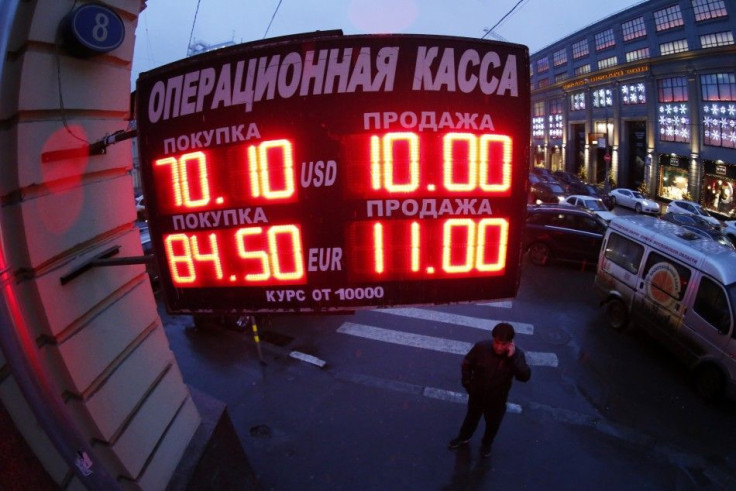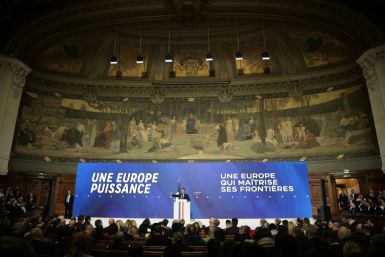Russian Economy: Balancing Ruble Slide With Economic Growth--Report

Russia may have to balance between stopping the slide of the ruble with sacrificing economic growth. The Central bank of Russia recently raised key interest rate. This has led to the country's currency strengthening in the past few days.
The key interest rate in Russia was raised to 17 percent on Dec 16, 2014. The ruble was trading at around 76 per USD at that time. The currency is currently trading at just over 56 per USD. According to a report by Bloomberg, the strengthening of the ruble may come at an economic cost.
Russian companies have reportedly been hit by high interest rates and the falling ruble. The Russian economy has also been hit by the recent drop in oil prices. A major portion of the country's economy depends on oil exports. The problems of the economy are also compounded by the sanctions imposed by the U.S and the European Union.
The Russian economy may reportedly shrink by 4.5 percent in the year 2015. That however may depend on whether the global oil prices continue to remain low. The OPEC countries have so far refused to cut production in order to stabilise the prices.
Russia's neighbour, China, has reportedly offered to help. According to a report by BusinessInsider, the Chinese Foreign Minister, Wang Yi, has said that China is ready to help Russia but expressed confidence that the country was capable of overcoming the current economic challenges. He did not elaborate on how exactly his country would help.
China's trade Minister has reportedly suggested using Chinese currency in order to settle trade deals between the two countries. China has so far not condemned Russia for its alleged actions in Ukraine but the country has also not endorsed Russia's actions.
The Central bank of Russia signed a bilateral national currency swap agreement with the People's Bank of China in October this year. The size of the swap facility is set to be 150 billion RMB. The agreement allows the two nations to access the other's currency liquidity without having to purchase it in the international foreign exchange market. Vladimir Putin and the Russian government have been taking measures in order to strengthen the Russian economy.
Contact the writer: s.trivedi@ibtimes.com.au






